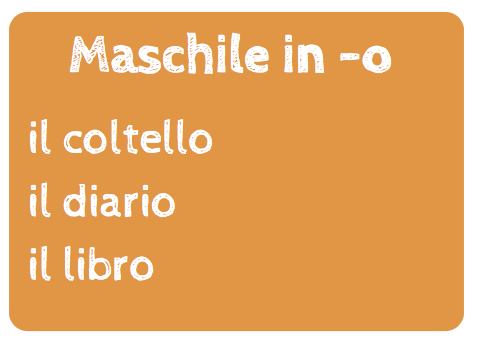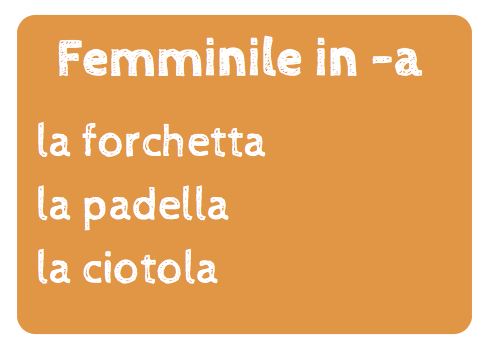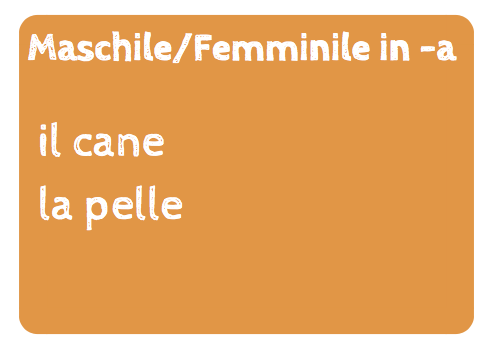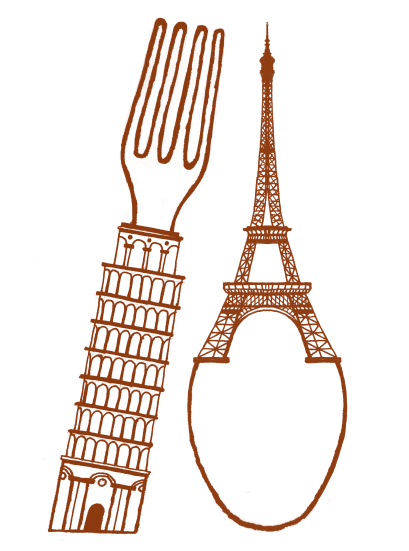Articolo e genere dei nomi - Welcome back to another lesson in Italian. Today's topic is the article and gender of nouns in Italian. Bentornati a The Languages Kitchen! In this new lesson, we're concentrating on another important topic.
First, you will find an introduction to the two most common types of articles used in Italian. Afterwards, concentrate on learning a bit more about the gender of nouns. This lesson on the articolo e genere dei nomi will give you the basics of these two topics, which we'll expand more on in future lessons. Therefore, let's start with the latter.
First of all, in Italian, as in most languages, most of the nouns are either masculine or feminine. However, as you may well guess by now, there are always some exceptions.
Secondly, before skipping straight to some examples, let's talk about the article as you'll be seeing a few examples down below. In Italian, there are two most common articles that are used all the time: the Articolo Determinativo (in English - the) and the Articolo Indeterminativo (in English - a).
Articolo Determinativo uses:
- Il (masc/sing)
- Lo (masc/sing - words starts with s+consonant, p+s, p+n, g+n, z, y)
- La (fem/sing)
- L' (vowel or H)
- I (masc/plur)
- Gli (masc/plur - word starts with s+consonant, p+s, p+n, g+n, z, y)
- Le (fem/plur)
Articolo Indeterminativo uses:
- Un (masc/sing)
- Uno (masc/sing - words starts with s+consonant, p+s, p+n, g+n, z, y)
- Una (fem/sing)
- Un' (fem/sing starting with vowel)
- Dei (masc/plur)
- Degli (masc/plur - words starts with s+consonant, p+s, p+n, g+n, z, y)
- Delle (fem/plur)
Il Genere dei nomi
The second point of today's lesson is the gender in Italian. As I mentioned in the introduction, there are two genres for nouns: masculine and feminine.
These are divided into three main principal groups:



Eccezioni/Exceptions:
- Masculine nouns that finish with -a: il pigiama, il clima, il pianeta
- Feminine nouns that finish with -o: la mano, la radio
- Nouns that finish with a consonant: il bar, lo sport, l'email
- Masculine and feminine words that finish with an accented vowel: il caffè, la città, il tiramisù
Both masculine and feminine use the same noun:
- -ista: il/la turista
- -a: il/la collega, lo/la psichiatra
- -e: il/la nipote, il/la cantante
Some change the ending completely:
- -tore/-trice: il direttore diventa la direttrice
- -ente/ore - essa: lo studente diventa la studentessa, il professore/la professoressa
Some are completely irregular:
- l'uomo diventa la donna
Some use very similar noun for both singular and plural:
- l'uovo - le uova, il dito - le dita
Abbreviazioni/Abbreviations:
- la foto(grafia), la moto(cicletta), la bici(cletta)
This simple explanation above including the examples will help you follow the most commonly used endings for masculine and feminine nouns. In addition, the short explanation of the two most common articles used in Italian gives you an introduction to the topic. We'll be tackling this topic further in the coming weeks.
To conclude this lesson, go ahead and click on the worksheet link below to gain more knowledge on the subject by practising all you've learnt from the above note. Download the worksheet for some exercises and enjoy learning!
